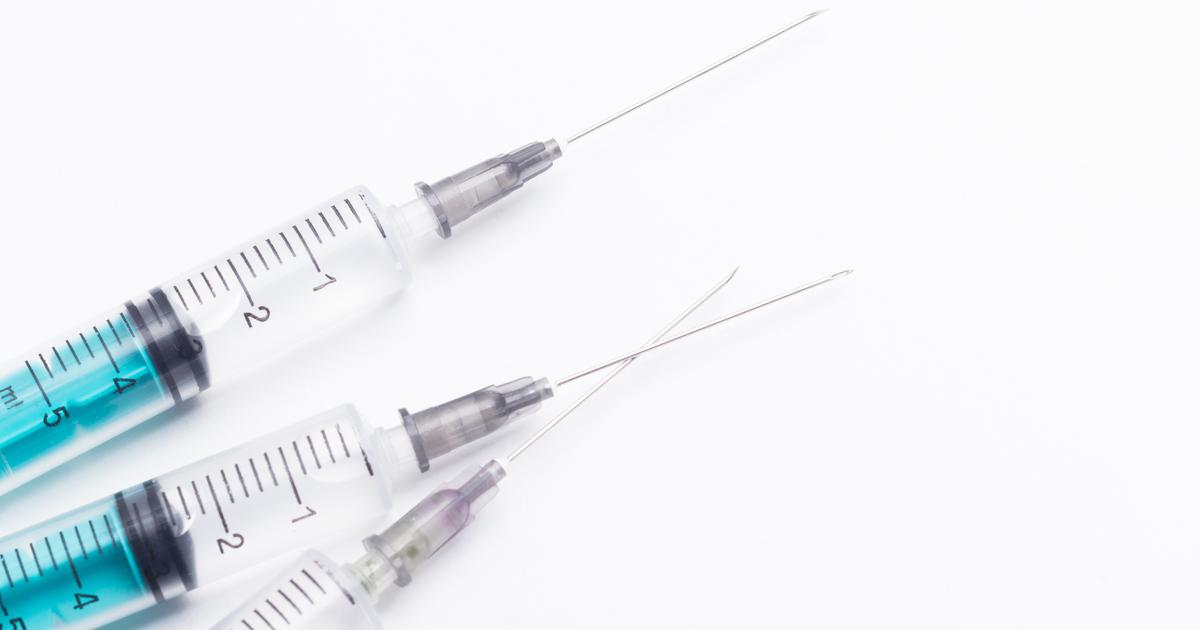"Our humanitarian duty is to save as many lives as possible" and "it is also in the interests of the Americans".
In two sentences, Joe Biden perfectly summed up the stakes of the billion doses of vaccines against Covid-19 that will be delivered to 92 of the poorest countries, via the Covax device.
The announcement was made at the G7 summit in England on Thursday evening.
Half will be provided by the United States, with 200 million Pfizer / BioNTech vaccines by the end of the year and 300 million in the first half of 2021. On May 21, Emmanuel Macron had already indicated that France would deliver " at least 30 million doses ”by the end of 2021.
G7 leaders are expected to agree to commit 1 billion coronavirus vaccine doses to end the pandemic in 2022.
The UK will donate at least 100 million surplus doses within the next year, including 5 million in the coming weeks.
Find out more 👇https: //t.co/xKc4NqxUIe#G7UK pic.twitter.com/E2L40RqPQ7
- G7 UK (@ G7) June 10, 2021
Vaccinating the rest of the planet, rich countries have everything to gain.
In terms of health, first of all.
If the population in certain regions of the world is poorly protected, there is a risk of new variants of SARS-CoV-2 emerging with mutations that make it more contagious or that may partially impact the effectiveness of vaccines.
In other words, a new Delta virus (from India) or Gamma (from Brazil) does not arrive in Europe or the United States.
"Selection pressure"
“Variants are circulating more and more, unless we can control them. And as long as there is circulation of the virus, other variants will appear with what is called the pressure of the circulation, ”warns the Parisian Pierre-Marie Girard, international director of the Institut Pasteur. This phenomenon is well known to scientists. To summarize: a variant bearing a mutation which gives it an “advantage” (for example if it is more transmissible or if it reduces the effectiveness of vaccines) will take precedence over the others and gradually replace them. We saw it, in France and everywhere in Europe, when the Alpha virus (known as “British”) gradually became the majority.
“If you have foci which are formed with a significant circulation of the virus, this will lead to mutants which will adapt to the population and may be more contagious, more virulent, even escaping vaccination.
And Western populations are not, for the moment, sufficiently vaccinated with two doses to cope with it ”, adds Patrick Berche, member of the Academy of Medicine and co-author of the book“ Pandemics ”.
Read alsoCovid-19: E484K, the other variant mutation that worries
Health is not the only aspect.
On the economic front, helping poor countries will make it possible to fully relaunch international trade, which has been disrupted or even stopped for nearly a year and a half.
“We live in a global globalization.
If a pandemic continues in India or South America, for example, it will always greatly disrupt world trade, ”points out Patrick Berche.
"If countries sink into very serious economic crises, this could lead to massive migratory flows, which is often considered a risk or something to be avoided by the countries of the North and the West", adds the economist of the health Nathalie Coutinet, lecturer at Sorbonne Paris Nord University.
Giving doses will not be enough
Another issue to take into account: public opinion. Rarely has the same event been so publicized all over the world and experienced by the vast majority of the planet's inhabitants. “We obviously talked about it, it has become something important for public opinion here too. And it is all the more visible that we ourselves have been vaccinated, ”points out Nathalie Coutinet. When the United States, France or Germany announce dose donations to Covax, it is difficult for the large neighboring States to stay away from the movement.
As summarized in the Washington Post Tom Hart, the acting CEO of the NGO One Campaign, "donating doses to Covax will save lives, reduce the spread of variants and help reopen the global economy."
“If there is a time for global ambition and action to end the pandemic, it is now,” he exclaimed.
But if offering doses is one thing, it won't be enough, scientists warn.
Pierre-Marie Girard calls for carrying out "a great deal of persuasion" in the less developed countries, especially in Africa: "We will have to train trainers on the spot, and insist on the fact that the epidemic is still active and that it there is a risk of a new wave.
"









